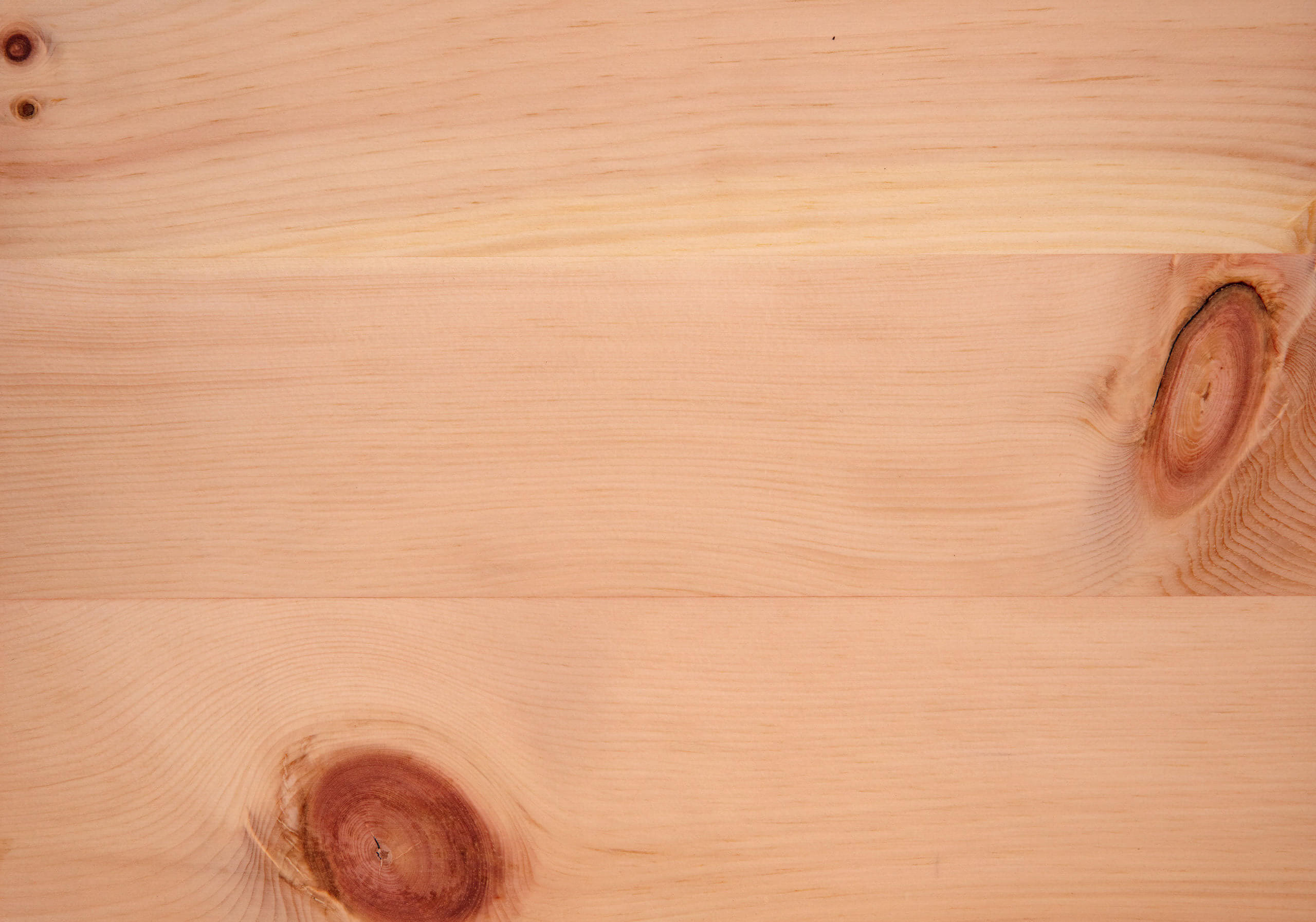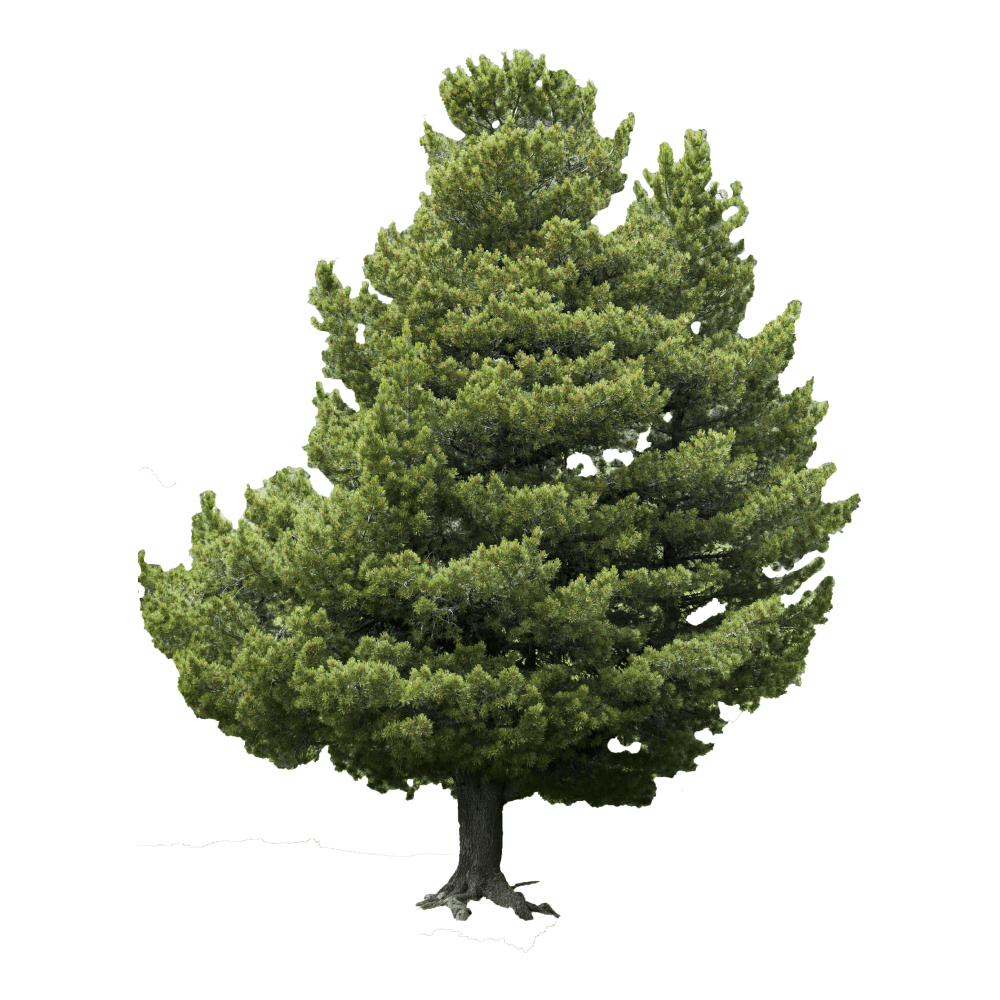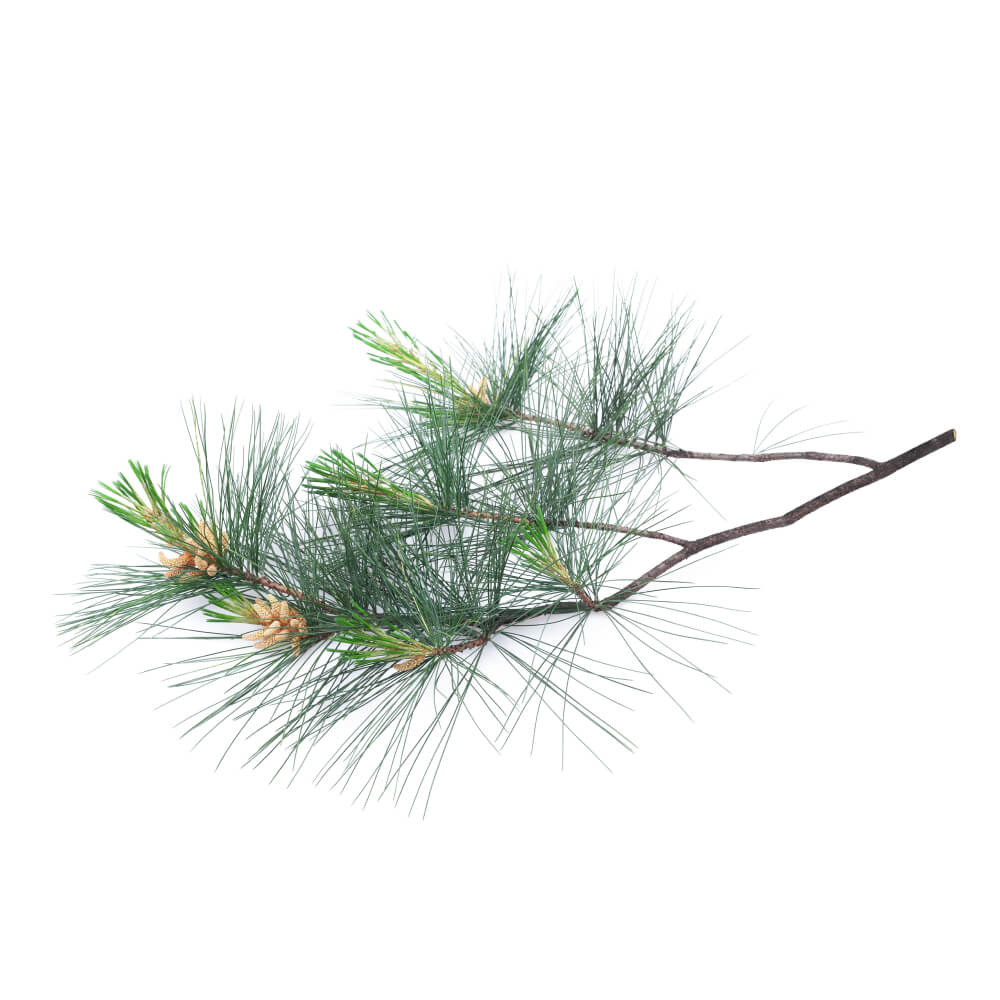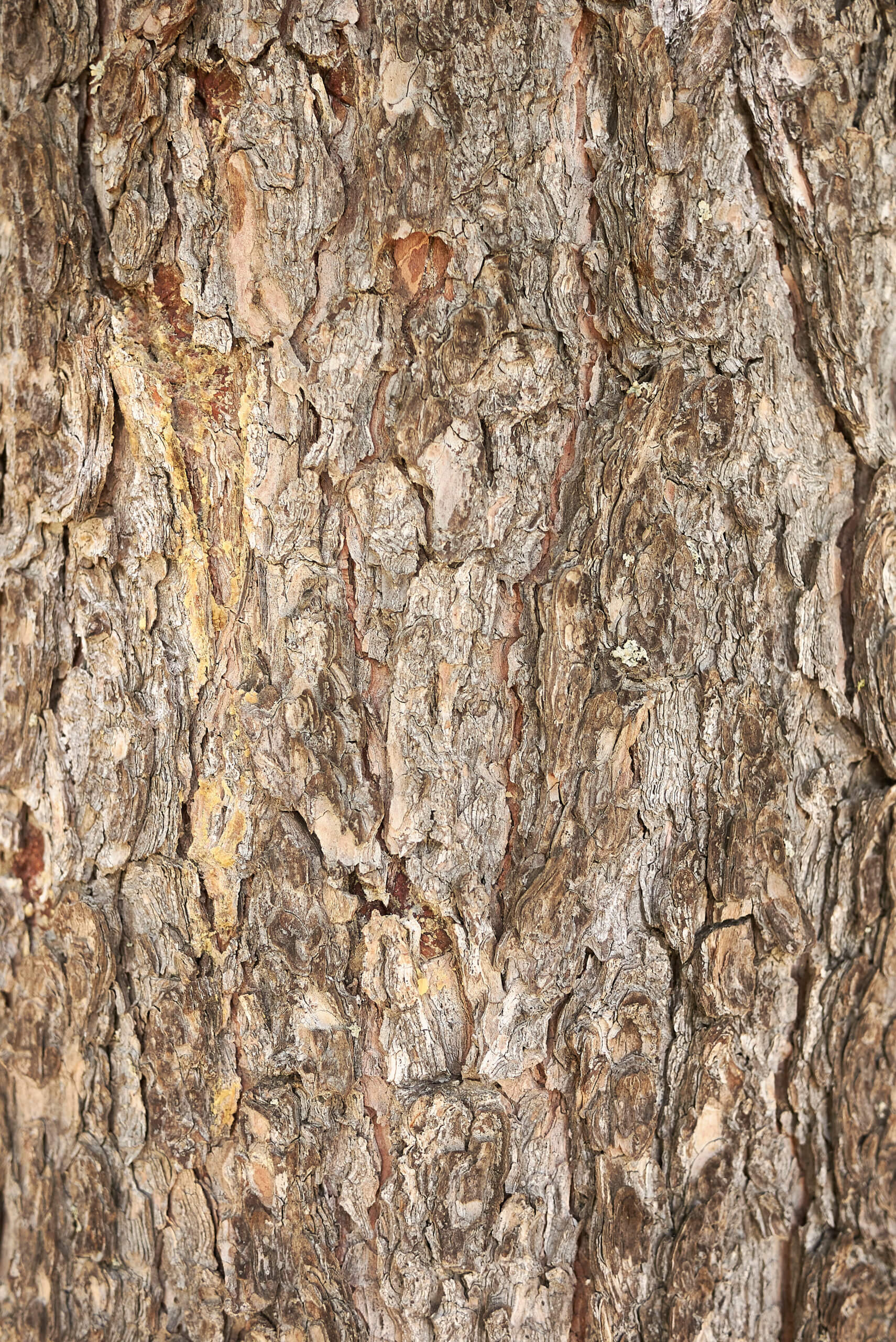Swiss pine / Swiss stone pine
bot. Pinus cembra

The main distribution area of the Swiss stone pine is in the subalpine-continental Alpine region at an altitude of 1300 to 2500 metres. It tolerates temperatures of -40 to +40 °C and is thus the best adapted of the native tree species to the harsh mountain climate. That is why the Swiss stone pine forms the uppermost forest edge in the mountains, where other tree species are no longer comfortable. The Swiss stone pine usually grows together with larches, alpine roses and blueberries. Since Swiss stone pine is soft and easy to work, it has always been an ideal material for elaborate furniture making, for artistic wall panels and for utility objects such as milk dishes. In addition, Swiss stone pine was used as firewood, which is why Swiss stone pine stands were widely overexploited.
Comments
Light reddish brown heartwood with narrow, white-yellowish sapwood.
Hardness grade
15 Brinell
Color
Hell-rötlichbraunes Kernholz mit Schmalem, weiss-gelblichen Splintholz.
Color change
Darkens slightly into reddish.
The fact that we still find Swiss stone pines in many areas of the Swiss Alps today is due not only to a changed thinking in the use of wood, but also to the resilience of this tree species.
Origin
- The Swiss stone pine thrives mainly in the high mountains from 1300 (Grindelwald) to 2585 m above sea level (Saas Valley).
- Its natural habitat is the Alps and the Carpathians.
Wood character
- Thick knots, decorative wood, satin finish.
- Sapwood white-beige, narrow, heartwood light reddish brown.
- Light resin canals especially in the late wood.
- Fine annual rings with little defined texture, wood nevertheless light.
- Very distinctive balsamic odour.
Use
- Because of its pleasant balsamic odour, it is often used for bedsteads and other interior furnishings. Less frequently also used for table tops and as planed timber.
Characteristics
Weight: 470 KG/M³
Weight (Average bulk density air dry, ᵨ 12...15)
Average hardness: 15 N/MM²
Average hardness according to Brinell (radial)
Stability: gut
Dimensional and form stability
Durability: mässig dauerhaft
Natural durability according to DIN-EN 350-2


